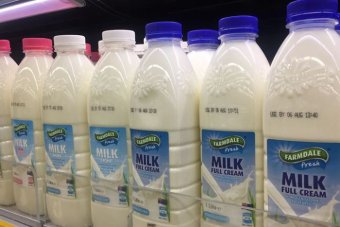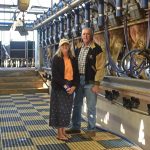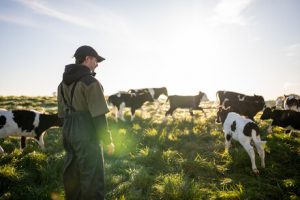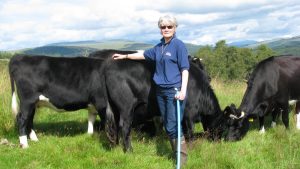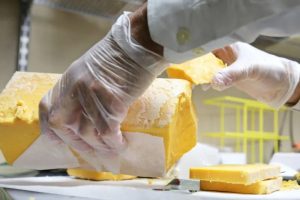
Aldi quietly added 10 cents per litre to its milk on Wednesday.
The price rise is the second this year — in March Aldi and Coles followed Woolworths in abolishing $1 per litre pricing on milk.
“I don’t think anyone knew in the industry at all,” Dairy Connect farmer group chairman Graham Forbes said.
“It’s great news, it’s what we need to see in the industry.”
In a statement to the ABC, Aldi said the recent price rises were the “direct result of the recent increase in the farm gate milk prices agreed between our milk suppliers and the dairy farmers.”
Aldi did not say if the latest increase would be passed along to dairy farmers, but said it will continue to “maintain the collection and distribution of 10 cents per litre, implemented earlier this year and ensure the proceeds are passed onto dairy farmers in full.”
Ashley McKinnon from Australian Dairy Farmers said the statement has left dairy farmers with little clarity about how the price rise will affect them, if at all.
“We will be making further inquiries with Aldi, to find out what their intentions are with this increase,” Mr McKinnon said.
Woolworths follows suit
In a statement to the ABC tonight, Woolworths said it too will raise milk prices in line with Aldi effective from tomorrow.
The dairy industry is now watching to see if Coles will also lift prices.
“It happened last time — I suppose this is the reverse,” Mr Forbes said.
“Last time Woolworths moved first, and then Aldi moved and Coles came with them, so hopefully the same happens.
“Certainly the pressure will be there for that to happen and there’s no reason to say it shouldn’t happen.”
Coles has issued a statement however saying that “Aldi’s milk prices are a matter for Aldi” and that it is “exploring long-term solutions with government and industry stakeholders”.
Sustainability still not being achieved
Mr Forbes said that while the price rise is welcome, the industry is a long way off being sustainable over the long term.
“I think a lot of people would like to see [the rises] continue and get up around $1.50 a litre where all sectors of the industry could survive and be sustainable,” he said.
“We need all three, the farmers the retailers, and the processors to be profitable, and we certainly need more movement to allow that to happen properly.”
While the industry is still facing challenges, Mr McKinnon said the price rise boosts confidence.
“Supermarket discounting has had an incredibly demoralising negative impact on the Australian diary industry over the last eight years,” he said.
“Now retailers are recognising that this pricing strategy must be fixed for the sake of the price chain.”
While milk prices have taken the majority of the focus in the plight of the dairy industry, there are also concerns around the price of cheese.
“We’re still seeing cheese being sold for $6 or $7 a kilo, and that’s virtually what farmers are returning, so we have a real concern there,” Mr Forbes said.
“We’re now a net importer of dairy products and the industry has basically collapsed in the last couple of years, so we need those prices to improve if the industry is going to stabilise or regrow at some stage.”
